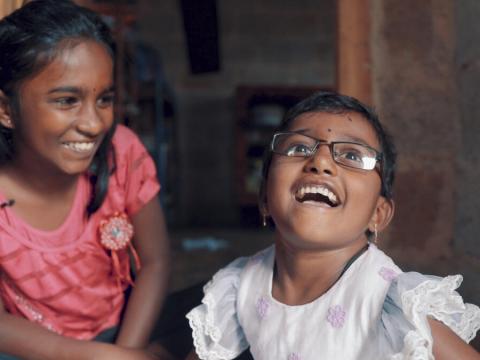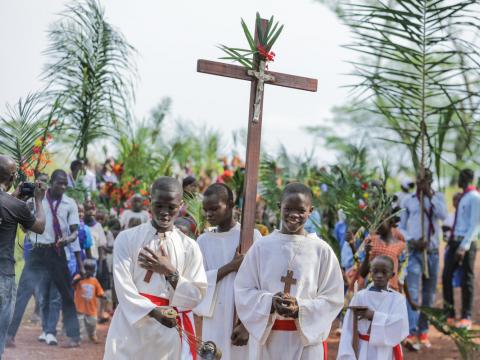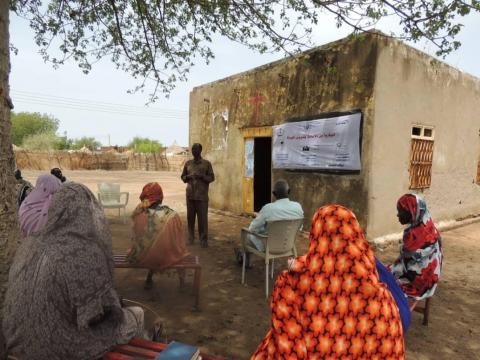
Why I have faith and hope in 2021
By Esther Lehmann-Sow
I started 2020 full of hope for the year. And despite everything we have been through and witnessed, I start 2021 the same way. I’m not an eternal optimist, I just believe we have such good reasons to face this year with faith that things will be better than the last.
Hope is what keeps me going when things are really dark. In the humanitarian industry, we face dire situations on a global scale; on top of COVID-19 and its aftershocks, we see increasing violence and fragility in countries like Mali, Niger and Syria, and dramatically increasing needs for food and basic necessities in countries like Yemen and Zimbabwe. Without hope I couldn’t keep going professionally or without becoming cynical.
Hope is an act of courage at times; an effort to exercise a muscle, or to call upon a memory. It requires us to be proactive. If you’re facing a wall, sometimes you just need to acknowledge the wall, turn your back to it, look around you, look upwards to God. Connecting back to what matters in your life. If you’re looking for things to be hopeful about, here are a few from 2020 that I will continue to lean on in this year’s dark moments:
- When faced with personal and global crises, people looked after each other
In World Vision, we saw immense generosity from donors globally. And we also saw the poorest and most vulnerable communities actively trying to find ways to cope, ways to help their neighbours. Children were engaged and active, helping to be part of solutions. A lot of the things we’ve scaled up and rolled out across the world started as small initiatives led by local communities and families looking out for each other. - People are innovating with the tool available to them
We had use some small WhatsApp groups before the pandemic, to communicate and train groups such as faith leaders around the world. As the pandemic hit, we saw a beehive of networks spring up – to learn more, to help counter misinformation, to connect with people trapped or in especially remote areas. It was an amazing thing to see. - Churches and people of faith stepped up
Faith leaders are the credible voices in so many of the communities we work with around the world. We know from experience that faith leaders have the power to affect positive (or negative) outcomes in a public health response, and we worked with more than 200,000 of them in response to COVID-19 so far. They adapted trainings and spread information, offered places as worship for health care, worked together to provide extra support to those made even more vulnerable by the virus and its aftershocks. Along with churches around the world, we stand ready to be part of a global roll-out of safe vaccines.
For me, hope is very closely linked to my faith in Christ, who is my source of hope. I believe that as long as we don’t forget to look up and get instruction from God and His perspective, we will not get stuck in despair or ego-centrism but we will be freed to hope, to share love, to share charity, to really help those who need it most.
Despite the challenges we may be facing, there is hope for every day of our lives.
Esther Lehmann-Sow is World Vision's Partnership Leader for Faith and Development. Follow Esther on Twitter @SowEsther
Listen to Esther speak about hope for 2021, on BBC’s Sunday programme here

